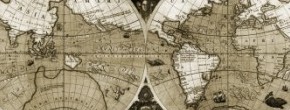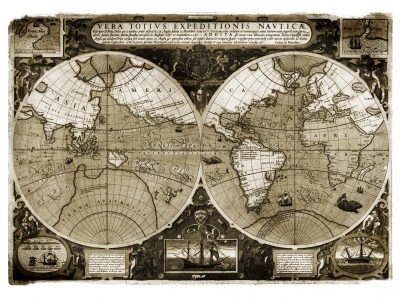 In an earlier comment, I attempted to make the point that history matters and that when doing business in different parts of the world, it would be wise to study the history of a country or territory. A similar argument can be made for studying its politics and the relationship that the country, and its current political leaders have with its neighbors and even the rest of the world.
In an earlier comment, I attempted to make the point that history matters and that when doing business in different parts of the world, it would be wise to study the history of a country or territory. A similar argument can be made for studying its politics and the relationship that the country, and its current political leaders have with its neighbors and even the rest of the world.
I am actually writing this note while teaching the Global Executive MBA program in Shanghai and, although I have been to the city before, am once again taken aback by its size and scope. Mao Tse Tung wrote that the Chinese people were like an atom and when their energy is released it “will have really tremendous power” and I must say that while Mao’s revolution appears to have been replaced by very different economic ideas, the power of this re-emergent China is clear to see.
Yesterday, the China Daily ran an article speaking about marine security and the potential of some kind of maritime clash with the United States. It was highly critical of Hillary Clinton making comments of the recent talks concerning the Yellow Sea. At issue is the definition of national boundaries at sea and the contiued freedom of the seas which have been guaranteed for the last 60 years by the United States Navy.
China is presently conducting a crash program to modernize its own navy and while it is far from becoming competitive, I understand that containing the Chinese naval expansion is the number one concern of the American Admiralty at this time.
Why all this is important is because many companies are increasingly incorporating China into their global supply chains and these supply lines rely, of course, on the free flow of shipping in and out of China.
If China were to suprise the world with a bold move in Taiwan or the islands in the Yellow Sea, Naval Blockade would be an option open to the United States and this would of course cut those supply lines as well as depriving China of needed raw materials including, but not limited to oil supplies.
What´s the risk of some temporary flare up leading to such a situation? While I do not know the answer, I do recommend that Senior Managers think through the implications of such geopolitical issues. Other potential trouble spots which come to mind are India’s relations with Pakistan, Russia’s relations to the Ukraine and the Baltics, the Middle East, and many others.
What I do think is important, is that while War might be difficult to contemplate and even not very probable in many cases, tension alone can disrupt trade and have serious implications for people trying to do business on this planet!




